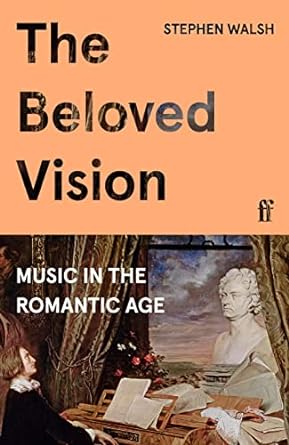The Beloved Vision

US Publisher: Pegasus
Everyone loves romantic music: the sweet melody of a Schubert song, the heroine dying for love in an Italian opera, the swooning orchestration of a Tchaikovsky symphony. But as Stephen Walsh – author of the highly praised Debussy: A Painter in Sound – points out in this intensely absorbing study, there is infinitely more to romantic music than meets the eye. The Beloved Vision amounts to a complete, entertaining and singularly readable account of the whole phase in music history that has become the mainstay of the twentieth and twenty-first century concert and operatic repertoire, with some little help from earlier times.
The narrative begins in the eighteenth century, with C.P.E. Bach, Haydn and the literary movement known as Sturm und Drang, seen as a reaction of the individual artist to the confident certainties of the Enlightenment. The windows are flung open, and everything to do with style, form, even technique, is exposed to the emotional and intellectual weather, the impulses and preferences of the individual composer. Risk taking – the braving of the unknown – was certainly an important part of what the composers wanted to do, as true of Chopin and Verdi as it is of Berlioz and Wagner. It’s an exciting, colourful, story, told with passion but also with the precision and clarity of detail for which this author is so widely admired.
‘A comprehensive and fluent history of Western classical composition in the long 19th century . . . a formidable piece of intellectual storytelling . . . a thoughtful, incisive and stimulating book’ ― Gramophone
